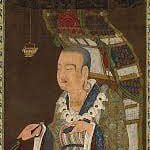“Discover the life and contributions of Al-Khwarizmi, the father of algebra and algorithms. This comprehensive biography explores his groundbreaking work in mathematics, astronomy, and geography during the Islamic Golden Age.”
Al-Khwarizmi-Brief Life Sketch
Al-Khwarizmi was an Arab mathematician. He was born in Baghdad in about 800 AD. In addition to writing books on Mathematics, he authored valuable books on astronomy and geography. In medieval Europe, the Latin translation of al-Khwarizmi’s writings had a profound effect. The term ‘algebra’ in Mathematics is said to have originated from the book ‘Al-Jabar’ which he wrote. Al-Khwarizmi died in about 850 AD. 0 0 0
Al-Khwarizmi-Comprehensive Biography
Introduction:
Abu Abdullah Muhammad ibn Musa al-Khwarizmi, commonly known as Al-Khwarizmi, was a prominent Persian mathematician, astronomer, and geographer. He is widely regarded as one of the greatest scholars of the Islamic Golden Age, especially in the field of mathematics. His contributions laid the groundwork for modern algebra, trigonometry, and geography.
Early Life and Background
Al-Khwarizmi was born around 780 CE in Khwarizm, a region that is now part of modern-day Uzbekistan. Little is known about his early life, but it is believed that he received a good education, likely influenced by the rich scholarly traditions of Persia and the Islamic world. During this period, the Abbasid Caliphate, particularly in Baghdad, was a center of learning and knowledge exchange, attracting scholars from across the empire.
Khwarizmi moved to Baghdad during the reign of Caliph Al-Ma’mun (813-833 CE), who was a great patron of science. He became part of the prestigious “House of Wisdom” (Bayt al-Hikma), a renowned intellectual center where scholars translated Greek, Persian, and Indian works into Arabic and contributed their own research.
Contributions to Mathematics
Al-Khwarizmi is most famous for his contributions to mathematics, particularly algebra. His work **”Kitab al-Jabr wa-l-Muqabala”** (The Compendious Book on Calculation by Completion and Balancing) is considered one of the earliest systematic treatments of algebra. The term “algebra” itself is derived from the word “al-Jabr” in the title of this book. This text laid the foundation for algebra as a distinct mathematical discipline, offering methods for solving linear and quadratic equations.
In this work, Khwarizmi emphasized practical applications of mathematics, such as inheritance laws, land measurement, and commerce. He introduced systematic procedures for solving equations, which later influenced European mathematics during the Renaissance. His approach to solving quadratic equations was both geometric and arithmetic, a unique combination at the time.
Al-Khwarizmi’s name also gave rise to the term “algorithm,” derived from the Latinization of his name. His contributions to algorithmic processes were key to the development of modern computer science.
Contributions to Astronomy and Geography
In addition to mathematics, Al-Khwarizmi made significant contributions to astronomy and geography. He wrote a comprehensive astronomical treatise, **”Zij al-Sindhind,”** which was based on Indian astronomy and adapted to the Islamic world. This work included tables for calculating the positions of the sun, moon, and planets, as well as tables of sine and tangent values used for astronomical calculations.
Khwarizmi’s geographical treatise, **”Kitab Surat al-Ard”** (The Book of the Image of the Earth), was an updated and corrected version of Ptolemy’s “Geography.” He compiled a list of coordinates of cities, mountains, rivers, and other geographical features, helping to correct some of Ptolemy’s errors. His work was vital in improving the accuracy of maps during the medieval period.
Influence and Legacy
Khwarizmi’s influence on the development of mathematics, astronomy, and geography is immeasurable. His work in algebra not only shaped medieval Islamic thought but also significantly impacted the Renaissance and modern mathematical sciences. His methods of calculation and problem-solving evolved into tools used in various fields such as engineering, computer science, and finance today.
He passed away around 850 CE, leaving behind a lasting legacy. His works were translated into Latin in the 12th century, playing a crucial role in the development of mathematics in Europe. Through these translations, Al-Khwarizmi’s methods spread across the continent, contributing to the foundation of modern mathematics and science.
Conclusion
He was a scholar ahead of his time, whose innovative contributions to mathematics, astronomy, and geography have had a lasting impact on the world. His work bridged ancient knowledge from Greece, Persia, and India with the burgeoning intellectual culture of the Islamic Golden Age. He not only advanced the mathematical sciences but also ensured that these advances were accessible to future generations. 0 0 0
Al-Khwarizmi-FAQs
Here are some FAQs on Al-Khwarizmi:
Who was Al-Khwarizmi?
Khwarizmi was a Persian mathematician, astronomer, and geographer who lived during the Islamic Golden Age (c. 780–850 CE). He is often called the “father of algebra” and made significant contributions to the development of mathematical sciences, particularly algebra and algorithmic methods.
What are Al-Khwarizmi’s most famous works?
Al-Khwarizmi is most famous for two works:
- Kitab al-Jabr wa-l-Muqabala” (The Compendious Book on Calculation by Completion and Balancing), which laid the foundations of algebra.
- “Zij al-Sindhind”, an astronomical text that provided tables for celestial calculations.
Why is Al-Khwarizmi called the father of algebra?
Al-Khwarizmi’s book “Kitab al-Jabr wa-l-Muqabala” introduced systematic methods for solving linear and quadratic equations. The word “algebra” is derived from “al-Jabr” in the book’s title, which marked the formalization of algebra as a separate mathematical discipline.
What does the term ‘algorithm’ have to do with Al-Khwarizmi?
The word ‘algorithm’ is derived from the Latinization of Al-Khwarizmi’s name. His work on systematic problem-solving and calculation influenced the development of step-by-step procedures that became essential in computing.
How did Al-Khwarizmi contribute to geography?
His work “Kitab Surat al-Ard” (The Book of the Image of the Earth) updated and corrected Ptolemy’s geographical data. It provided more accurate coordinates for cities, mountains, and rivers, improving medieval mapmaking.
What was the significance of Al-Khwarizmi’s contributions to astronomy?
Al-Khwarizmi’s astronomical tables in “Zij al-Sindhind” helped refine calculations of celestial bodies’ positions. His work included sine and tangent values, vital for astronomical observations.
How did Al-Khwarizmi influence European mathematics?
Al-Khwarizmi’s mathematical works were translated into Latin in the 12th century and played a critical role in the revival of mathematical knowledge in Europe during the Renaissance. His methods for solving equations became foundational for European mathematics.
What is the significance of Al-Khwarizmi’s work today?
His contributions laid the groundwork for modern algebra, algorithmic processes, and trigonometry. His work continues to influence fields such as computer science, engineering, and finance today.
Where was Al-Khwarizmi born?
Al-Khwarizmi was born in Khwarizm (modern-day Khiva, Uzbekistan) around 780 CE.
When did Al-Khwarizmi die?
He passed away around 850 CE, leaving behind a profound legacy in mathematics and science.
Al-Khwarizmi-Facts
Here are some key facts about Al-Khwarizmi:
Full Name: Abu Abdullah Muhammad ibn Musa al-Khwarizmi.
Birthplace: Khwarizm (modern-day Khiva, Uzbekistan), around 780 CE.
Contributions:
- Algebra: He is considered the father of algebra due to his work in formalizing algebraic methods in his book “Kitab al-Jabr wa-l-Muqabala”.
- Algorithms: The term “algorithm” is derived from the Latinization of his name, due to his work in systematic problem-solving and calculations.
Astronomy: Khwarizmi’s “Zij al-Sindhind” is a key astronomical text that provided tables for calculating celestial positions.
- Geography: His geographical work, “Kitab Surat al-Ard”, corrected Ptolemy’s errors and provided accurate coordinates of geographical features.
- Translation of Works: His works were translated into Latin in the 12th century, greatly influencing the development of European mathematics.
Education: He was part of the ‘House of Wisdom’ in Baghdad, a center for knowledge and learning in the Abbasid Caliphate.
Mathematical Influence: Khwarizmi’s work laid the foundation for the study of algebra and influenced the development of arithmetic and trigonometry.
Legacy: His methods for solving equations and celestial calculations influenced future generations and remain foundational in fields like computer science.
Death: He died around 850 CE.
These facts highlight Khwarizmi’s lasting impact on mathematics, astronomy, and geography.
N.B. The article ‘Al-Khwarizmi-Brief Life Sketch’ originally belongs to the book ‘Introduction to World Personalities‘ by Menonim Menonimus.
Books of Composition by M. Menonimus:
- Advertisement Writing
- Amplification Writing
- Note Making
- Paragraph Writing
- Notice Writing
- Passage Comprehension
- The Art of Poster Writing
- The Art of Letter Writing
- Report Writing
- Story Writing
- Substance Writing
- School Essays Part-I
- School Essays Part-II
- School English Grammar Part-I
- School English Grammar Part-II..
Books of S. Story by M. Menonimus:
Books of Biography by M. Menonimus:
- The World Writers-Brief Biographies
- Introduction to World Writers
- Introduction to World Personalities
- Love of Reputed Persons ..
Related Search:
- Lives of Poets
- Writers’ Lives
- Top Hundred Writers
- Best Writers of All Time
- Most Eminent English Poets











